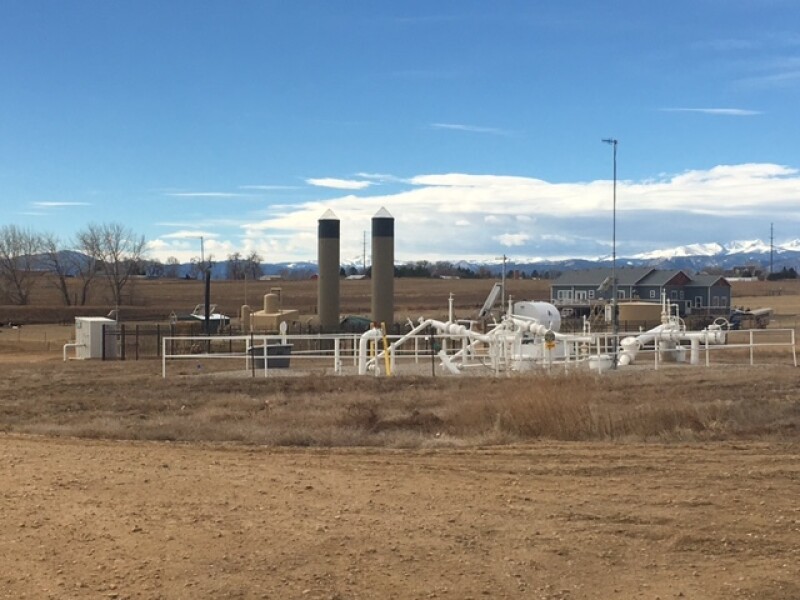The Colorado Air Quality Control Commission (AQCC) unanimously approved a rule requiring oil and gas operators to install zero-bleed or zero-emission pneumatic devices for both new and existing operations.
Months of negotiations leading to the AQCC rule involved local governments, environmental groups, and industry.
“Last year’s terrifying wildfires were yet another reminder that climate change is here and local communities across Colorado are suffering the consequences. This collaboration between local governments, environmental groups, and industry will mean less carbon pollution and cleaner, safer air. It is a win for Coloradans all over the state,” said Erica Sparhawk, a trustee for the town of Carbondale and president of Colorado Communities for Climate Action, a coalition of 36 local governments across the state.
Pneumatic controllers—devices that open and close valves to regulate temperature and pressure at production facilities and well sites—are the second largest source of methane emissions from oil and gas operations in Colorado.
They also release volatile organic compounds, which contribute to the Denver Metro Area’s high levels of ozone as well as cancer-causing benzene and other hazardous air pollutants.
“After a year of explosive wildfires and dangerous air quality, it is clear that Colorado communities are already paying the costs of the climate crisis,” said Jeff Zayach, executive director of Boulder County Public Health. “Millions of Front Range residents—especially those in historically marginalized and disproportionately impacted communities—have been suffering from exposure to ozone pollution due to these sources. While there is still much more work to be done to tackle the ozone problem, this new rule will mean improved conditions for Coloradans all over the state.”
Pneumatic controllers, which are used by operators throughout the state, rely on pressurized natural gas to activate valves at oil and gas facilities. Traditionally, these devices have been designed to emit methane and other pollution each time they actuate. However, newer, nonemitting devices are widely available today and represent an opportunity to reduce pollution at well sites across the state.
“Colorado is once again leading the nation in addressing methane emissions from the oil and gas industry,” said Dan Grossman, Rocky Mountain regional director for the Environmental Defense Fund. “With broad support from industry and the environmental and public health community, the commission is setting the standard for other states and the US EPA to follow in addressing pollution from new and existing sites using pneumatic devices.”
According to a 2017 Environmental Defense Fund analysis, pneumatic controllers released more than 132,000 metric tons of methane, or about the same amount of climate pollution as nearly 1.9 million passenger cars. Methane is a powerful greenhouse gas that is more than 80 times more potent than carbon dioxide at trapping heat within the Earth’s atmosphere over a 20-year timeframe.
Grassroots and community groups hailed the rule as a win, welcoming emission cuts from one of the largest oil and gas emission sources. In a 2019 study, the Colorado Department of Public Health and Environment found those living closest to oil and gas development are most at risk of negative health effects from air toxins such as benzene and toluene.
Rodger Steen, the chairman of Western Colorado Alliance’s Oil and Gas Committee, said, “We are pleased that this new rule was developed in collaboration with industry, which is the ideal way to develop new rules for all emitters of air pollution. Requiring use only of these nonemitting controllers by the oil and gas industry represents an initial step in a series of steps needed to minimize climate change.”
The AQCC’s rule for pneumatic controllers would do the following:
- Require all new and modified well production sites and compressor stations to only use controllers that are nonemitting (i.e., that operate on compressed air or electricity
- Establish a first-in-the-nation requirement to phase in the retrofit of existing pneumatic controllers with nonemitting controllers taking a companywide plan approach to allow the industry to target those sites with the highest emissions

